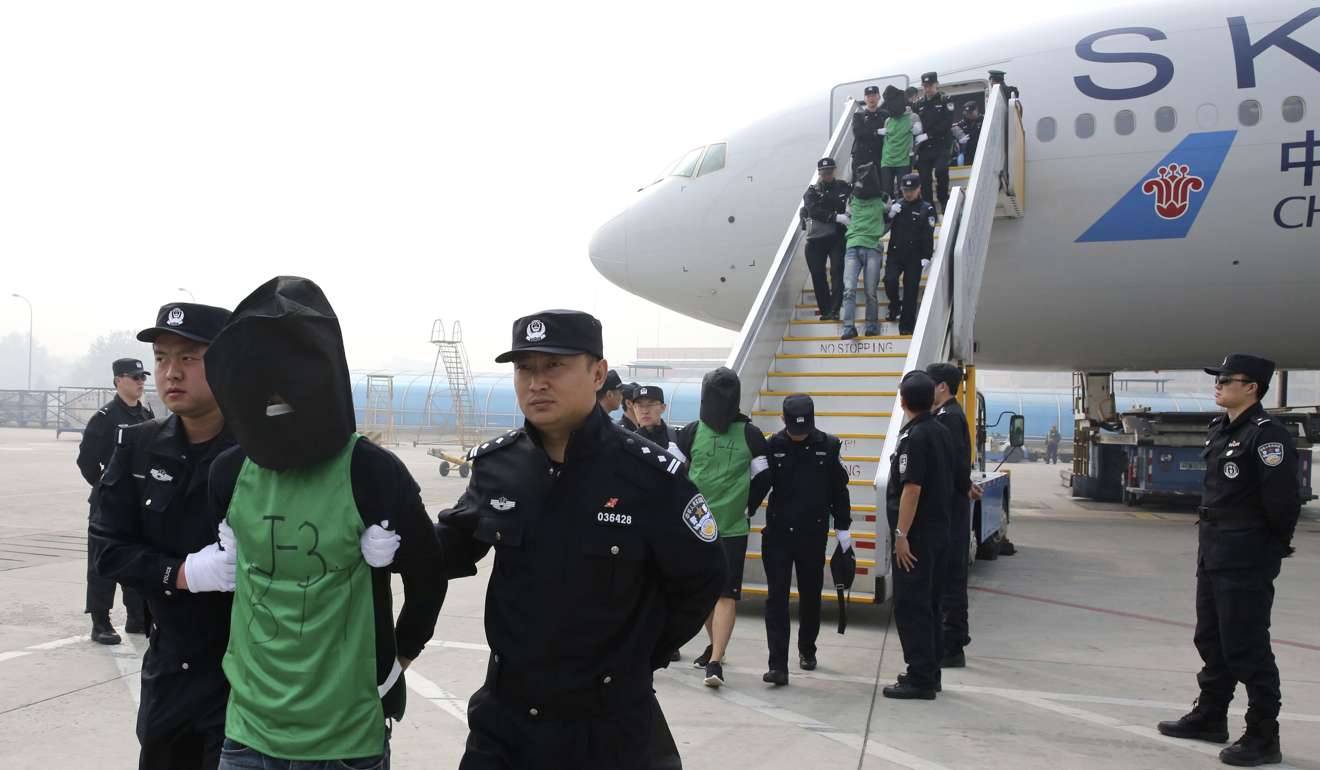
In ‘snub over one-China’, Beijing turns deaf ear to Taipei’s call to send back phone scam suspects
Beijing refuses to send back phone scam suspects over Tsai’s stand on 1992 consensus, analysts say
Beijing has repeatedly ignored Taipei’s request to return roughly 400 Taiwanese detained over alleged offshore telecom scams over the past year, in a snub to the island’s independence-leaning president, according to observers.
Analysts said Beijing was unlikely to return any of the detainees if President Tsai Ing-wen continued to refuse to accept the 1992 consensus.
The consensus underpins the one-China principle and Beijing sees it as the bottom line for resuming cross-strait talks.
Beijing has worked with various countries over the years to stamp out phone scams that have targeted mainland victims.
At the request of and under pressure from Beijing, suspected players in these scams – including those from Taiwan – have been deported to the mainland instead of the island.
With Spain sending 218 Taiwanese suspects and 51 of their mainland counterparts to Beijing over the weekend, the number of such suspects from Taiwan has grown to more than 400, according to various figures released by foreign governments since mid-June.
Despite strong protests from Taiwan, the mainland authorities have turned a blind eye to verbal and written messages sent by the island’s authorities since May, including those from the semi-official Straits Exchange Foundation which is charged with dealing with the mainland.
A statement issued by the island’s Mainland Affairs Council said all phone scam suspects should be returned to Taiwan for investigation, prosecution and trial.

The council called on the mainland to help arrange family visits for the suspects.
The situation was in contrast to that under Tsai’s predecessor, Ma Ying-jeou, from the mainland-friendly Kuomintang.
In 2010 and 2011, during Ma’s presidency, Beijing sent 486 Taiwanese suspects to the island for prosecution under a crime-fighting deal between both sides. Many of those sent were given suspended sentences or fined.
Ma was able to get back 20 Taiwanese suspects from Malaysia in April after weeks of negotiations with the mainland, but 25 suspects arrested in Cambodia and those who followed remained detained on the mainland.
Observers said Ma’s policy of engagement with the mainland helped improve cross-strait ties between 2008 and last year, prompting Beijing to allow suspects to return to Taiwan to be charged and tried.
“Tsai’s refusal to acknowledge the 1992 consensus has given Beijing a very good excuse not to send suspects back,” said Wang Kung-yi, a professor of international relations and strategic studies at Tamkang University in Taiwan.
Ma Xiaoguang, spokesman for the State Council’s Taiwan Affairs Office on the mainland, said earlier that there had been no talks between police on either side of the strait since Tsai was inaugurated last year.
Wang said Beijing was also ignoring Taiwan’s repatriation requests because it was more annoyed by phone scams and the likelihood of lighter sentences the suspects would receive on the island.
“It has been very unhappy with Taiwan’s handling of those suspects,” he said.
“They were released almost right after they were sent back to Taiwan, pending further investigations due to Taiwan’s judiciary principle that a person is assumed innocent before proven guilty,” he said.

